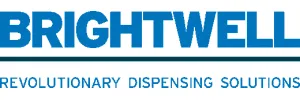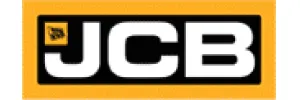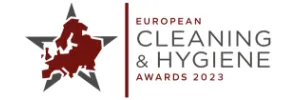News & Insights
Read the latest news from us and our clients across the globe

Posted on 24 April 2013 by adtrak.admin
Insuring peace of mind
The list of issues that cleaning contractors need to consider in regard to insurance matters is endless, and staying on top of new legislation while running a business can be a huge challenge. Ashley Hoadley of insurance broker Darwin Clayton explains the complexities of risk management and insurance issues to clear up some potential confusion.
Keeping abreast of legislation
Running a cleaning business in the 21st century is a challenge. With so many issues to consider – including health and safety regulations and a seemingly ever-changing raft of legislation – employers and business owners can’t hope to be experts in every single field. It’s hard to keep track of all the issues that need to be addressed, especially when it comes to insuring against the risks involved.
By partnering with a trusted and knowledgeable insurance broker, who has a proven track record of delivering results to satisfied clients, the risks can be minimised by ensuring that the right insurance cover is in place.
The issues that a cleaning contractor needs to consider in order to protect both staff and business adequately have increased in number and complexity over recent years. Few busy cleaning companies realise just how complicated the situation has become, or how much help they need if they are to buy the cover they require without breaking the bank – or the law.
Helping cleaning contractors to understand changing legislation, revised health and safety regulations, and the risks that these changes introduce is a service that specialist insurance brokers can deliver. Reputable firms will be able to provide advice at all times, so don’t be afraid to ask your broker questions, and keep them up to date on any changes within your company, or to your individual contracts. This will ensure that you get the right information and the right cover for your specific needs.
Risk management
We recently entered into a new partnership with Aviva to provide free risk management services to each of our cleaning contractor clients. A risk helpline enables contractors to get fast, free, authoritative advice on any risk-related queries they may have. The advisers can answer questions on a variety of subjects ranging from how to comply with health and safety legislation, through to how specific hazards, including environmental management, security, fire and business continuity issues, should be managed.
Understanding risks and taking appropriate preventative measures makes sense because the impact of a loss can be far-reaching. A contractor’s time, effort and substantial costs can be at stake. For example, new and important changes have been made to the RIDDOR requirements (Reporting of Injuries, Diseases and Dangerous Occurrences Regulations) which the government says will reduce business paperwork with respect to health and safety.
RIDDOR puts duties on employers, the self-employed and people in control of work premises (the Responsible Person) to report serious workplace accidents, occupational diseases and specified dangerous occurrences (near misses).
Under an independent review, by 2014 the government aims to reassess, revoke or improve 50% of health and safety regulations leaving Great Britain with a simpler, more effective regulatory framework. The aim is to ease burdens on business and encourage growth whilst at the same time maintaining the progress made in health and safety outcomes.
Motor claims
Being on the road is a fact of life for all of us, whether you’re delivering consumables or travelling to premises scheduled to be cleaned. Unfortunately minor accidents can happen, often through no fault of our own, either in our work or free time.
Personal injury claims have been a major bugbear for a lot of people, with many businesses feeling that it is too easy to make claims and that the costs of dealing with claims is too high. The costs are often seen as being disproportionate in relation to the damages the claimant receives, inflating the total claim significantly.
To help rectify this, two years ago the Ministry of Justice (MOJ) changed how low value road traffic accident (RTA) personal injury claims were managed. The aim of the reforms was to encourage early notification of claims, early liability decisions and a fair process to deliver compensation to the claimant as soon as possible, and in the most cost-effective way.
More recently the Government announced that the Road Traffic Personal Injury Protocol would be extended by April 2013 to include cases with claim limits up to £25,000 (from its current rate of £10,000) and also employer’s and public liability accident claims up to £25,000.
As part of these reforms, a Road Traffic Accident Scheme online portal was set up by the insurance industry in conjunction with claimant lawyers, so that claims could be dealt with more effectively.
Under the new system, claims are dealt with online which encourages both insurers’ and claimants’ representatives to act as quickly as possible to specified times – for example, there’s a 15 working-day time limit for investigating liability on motor claims.
Analysis by the Association of British Insurers has shown that the average lifecycle for a claim kept in the portal is less than half of the lifecycle of similar claims dealt with outside of the portal, so there’s a clear benefit to keeping claims within the new process. The percentage of claims settled within the calendar year 2010, when the new system was introduced, was up by over 3% from 2009. This represents the largest increase in the decade.
Use of the portal is also having an effect on ATE (After the Event) insurance premiums, which can now be obtained by claimant representatives for less than half the price of premiums covering cases being dealt with through the old process.
While the portal undoubtedly has a positive effect on the lifecycle of a claim, the shortened timescale for reaching a liability decision can still present problems – that’s why it remains vital that claims are notified to insurers as soon as possible, and with as much information as possible, to enable liability investigations to be concluded within the 15-day time limit.
Darwin Clayton has recently added important new services for cleaning contractors to its portfolio, including a 24/7 motor insurance claims line. Provided in conjunction with the company’s new partner, Proximo, the 24/7 claims line is vital for cleaners, who are often on the road at night. Highly trained claims-line staff will, as necessary, provide incident support, liaise with insurers and provide replacement vans or cars where applicable. The whole service is planned with the special requirements of cleaning contractors in mind, and the claims line is available at any time of day or night, seven days a week.
Keep up with changes
Issues which often need clarification are explained on our website including the insurance and health and safety legislation affecting employers when employees use their own vehicles for company business; environmental liability insurance; and insurance policy conditions. You can also obtain detailed explanations of legal expenses insurance and many other crucial areas of cover that are vital to cleaners.
Legislation is constantly changing. For example, The Health and Safety Executive (HSE) has been gauging public opinion on potential changes to the UK’s first aid laws.
Plans are in place to remove the need for first aid training providers to be approved by the HSE, a move that the organisation believes will benefit businesses.
The proposals to alter the Health and Safety (First Aid) Regulations (1981) were made in the independent Lofstedt report. The earliest any potential law changes could come into effect is April 2013.
Published in Cleaning Hygiene Today – January 2013
Experts in Public Relations Services & Communications Management
Our ServicesGenuine industry specialists in cleaning and hygiene, environmental and recycling, and facilities management
Our Sectors












